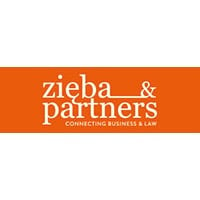

General counsel | Onwelo




Piotr Piekutowski
General counsel | Onwelo
I am responsible for providing sophisticated legal and compliance advice in Europe and the US. The need to adapt to different markets and Onwelo’s scale of development has been challenging, but I have handled those issues entirely. Along with Onwelo’s expansion, the size and complexity of legal problems have changed over time. My litigation strategy and actions in court resulted in the signing of a settlement with the companies from the corporate group managed by the company involved in restructuration proceeding before the court.
In my opinion, soft skills and personal attributes are essential for in-house lawyers. This part of the business activity of an in-house lawyer seems to be underestimated. I believe that the most important skills to possess are the ability to negotiate and persuade. A common situation is that an in-house lawyer has not one but two opponents (inside – the delivery, and external – the company’s client). The primary responsibility of an in-house lawyer is to perform the best legal service in the best company’s interest. It is impossible to achieve this without the ability to convince. Without those soft skills, an in-house lawyer would be deemed a deal-breaker.
The most important is the problem-solving attitude. It is easy to multiply the problems, but it is challenging to solve them under the law. From new hire, I expect the excellent knowledge of the law and eagerness to self-development. It is easier to cooperate within the legal department when people are team-players and can find the proper solution. Accuracy is also desirable.
They should gain the trust of their clients. For the in-house it will be mostly one client – represented by the business provider – and you must convince clients to seek the legal advice so it is not too late. It is crucial to prevent the situation when legal counsel is impossible to perform successfully, and counsel is too expensive (including the costs of litigation).
To be good or the best in a narrow field of law. I prefer to cooperate with boutique law firms which are highly specialised. The size and complexity
of the case may cause that there is no other choice than the international law firm. I prefer the boutique ones.
FOCUS ON… THE ROLE
Is the role of the in-house lawyer the same as an attorney at a law firm?
The above question may mislead you. Some may say that the in-house lawyer and attorney in the law firm are the same law professionals, the others say the contrary. So what is all about dividing lawyers for in-house lawyers and attorneys in the law firms?
I have to admit, that to be the in-house lawyer is much more demanding than to be one in a law firm. This difference is the reason why transfers from law office to the legal department is not always a success story. Nowadays, it is common for recruiters to look for legal departments’ lawyers with the previous in-house experience. If one can compare legal knowledge, so what is the difference? The answer is: practicing law in a law firm and as an in-house counsel is not the same at all.
Except for the knowledge of the law, legal department and law firm demand the different skills. Firstly, it is more demanding to perform excellent legal service and to be the independent lawyer at the same time, when in-house is perceived as a service provider for business. In the law firm revenue drivers are lawyers. The sense of control is a crucial issue here.
Secondly, within the law firm attorneys should know how to develop business and acquire new clients. In the legal department, they should know how to support the company’s core business and meet the company’s needs and expectations while protecting the company’s best interests. Additionally, an in-house lawyer often has not one but two opponents (inside – the delivery, and external – the company’s client). Negotiations skills aimed at the win-win situation are highly desired.
The scope of the practice area is the next distinction. In-house lawyers are focused on a few branches of the law (such as corporate law, labour law, contract, IP), at the law firm lawyer may perform services which can be needed seldom by a company. Mostly the law firms perform litigation for companies. The legal department handles small cases before the court. The primary responsibility of the in-house lawyer is to support the company’s business, not to litigate cases. For an in-house counsel, it is challenging to gain experience at litigation.
In my opinion, it is reasonable that lawyers are highly specialised. That specialisation includes the division for in-house lawyers and attorneys in a law firm. The in-house lawyer must be able to foresee potential problems and prevent them. At the law firm, the goal is to solve the problem that has arisen.
My colleagues working for international law firms envy that as an in-house counsel, I don’t work as many over hours as them. They imagine themselves as in-house lawyers in a few years. For them, it could be “well-deserved retirement”. Unfortunately, I predict fiasco in such transfer. Despite that, I wish them luck in a demanding environment.